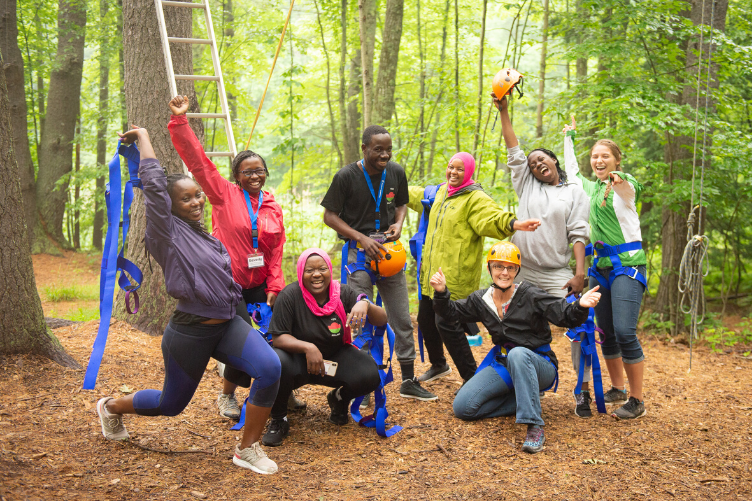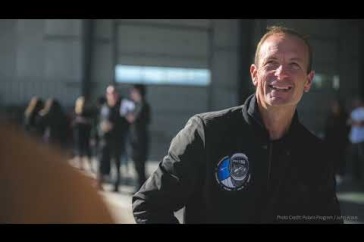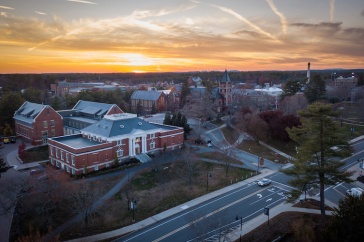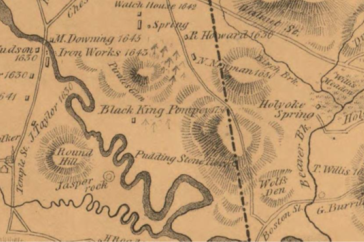
YES-Africa participants spent 10 days on the UNH campus over the summer.
For 10 days over the summer break, when many UNH faculty and staff were enjoying a bit of time off, Durham was abuzz with activity as 17 youth sports leaders from Malawi, Africa, were on campus for an intensive exchange program focusing on inclusive sports for youth with disabilities.
The Youth Enrichment through Sports (YES)-Africa Malawi program is a collaborative partnership between UNH and Indiana University’s School of Public Health. The two-year exchange program is funded through an international sports programming initiative cooperative agreement from the sports diplomacy division of the Bureau of Educational and Cultural Affairs at the U.S. Department of State.
The purpose of the UNH YES-Africa Malawi exchange is to build capacity for youth sport leaders to develop and implement inclusive sports opportunities for youth with disabilities in Malawi, Africa.
  |
| Playing adaptive sports at Hamel Rec Center |
During the fall 2018 semester, Bob Barcelona, associate professor and chair of the department of recreation management and policy, and Jess Amato, schools program director from Northeast Passage, traveled to Malawi to recruit and interview participants for the exchange program.
“Going to Malawi on the pre-assessment trip was a life-changer. We went from knowing no one to creating relationships with some of the most committed sports and recreation leaders working in the area of adaptive and inclusive sports in the country,” says Barcelona. “We have representatives from Special Olympics Malawi, the Mary Waya Netball Academy, schools, rehabilitation centers, non-profits and Paralympic organizations all participating in the exchange.”
  |
| Team building at The Browne Center |
The 10-day program at UNH was led by an interdisciplinary team of faculty, staff and students from the department of recreation management and policy, department of health management and policy and Northeast Passage. Seventeen youth leaders were selected to participate in the sports exchange program on the UNH campus where they learned how to develop, implement and evaluate adaptive sport opportunities for youth with disabilities in Malawi. The program focused on coaching and leadership, health education, positive youth development through sports, inclusion and disability practices, assistive technology and more. In the summer of 2020, the UNH YES-Africa team will travel back to Malawi to follow up on participant successes in applying what they learned.
The group of Malawian sports leaders participated in experiential team-building activities on the challenge course at UNH’s Browne Center. They also toured UNH’s athletic fields and facilities and participated in adaptive sports programming at the Hamel Recreation Center.
Recreation management and policy students gained hands-on experience while providing logistical and program assistance throughout the exchange program.
“The work everyone has been doing is helping youth with disabilities find their place in an ever-changing world,” says Miranda Zuba ‘21. “What every single participant has learned about inclusion during YES-Malawi does not end with them; it will spread. The work that has and will happen as a result of YES-Africa Malawi will be helping to make the world a more inclusive and supportive community.”
Alumna Kyla Madden ’19 said the most enlightening aspect of the program for her was connecting with the Malawian participants, learning about their youth programs in Africa and sharing what she has learned in her accelerated graduate program at UNH. “Their creativity in adapting materials and making sports happen for their youth participants is really impressive and something I aspire to.”
Watch the NH Chronicle video that covered the YES-Africa Malawi program at UNH.
-
Written By:
Callie Carr | UNH College of Health and Human Services | callie.carr@unh.edu | 603-862-0970

















































